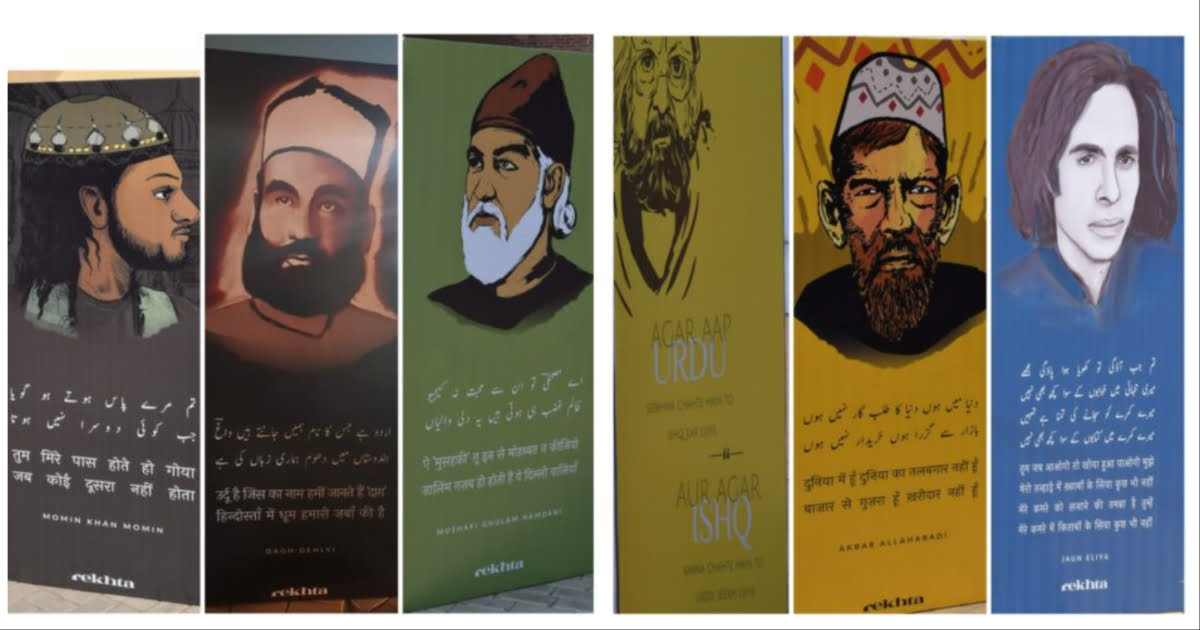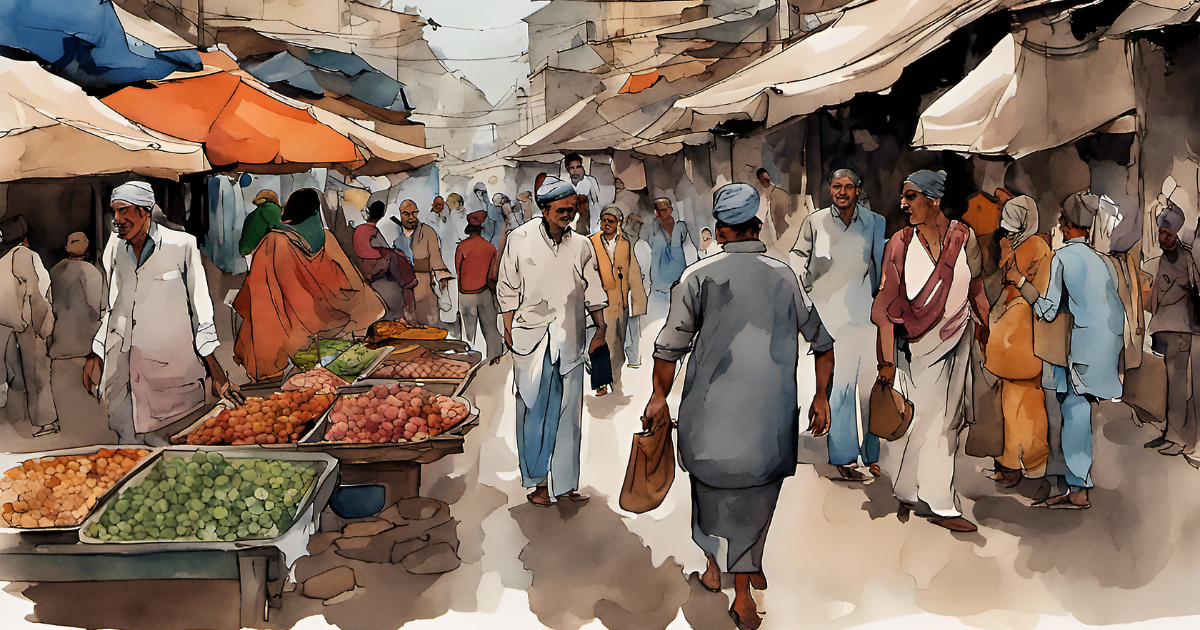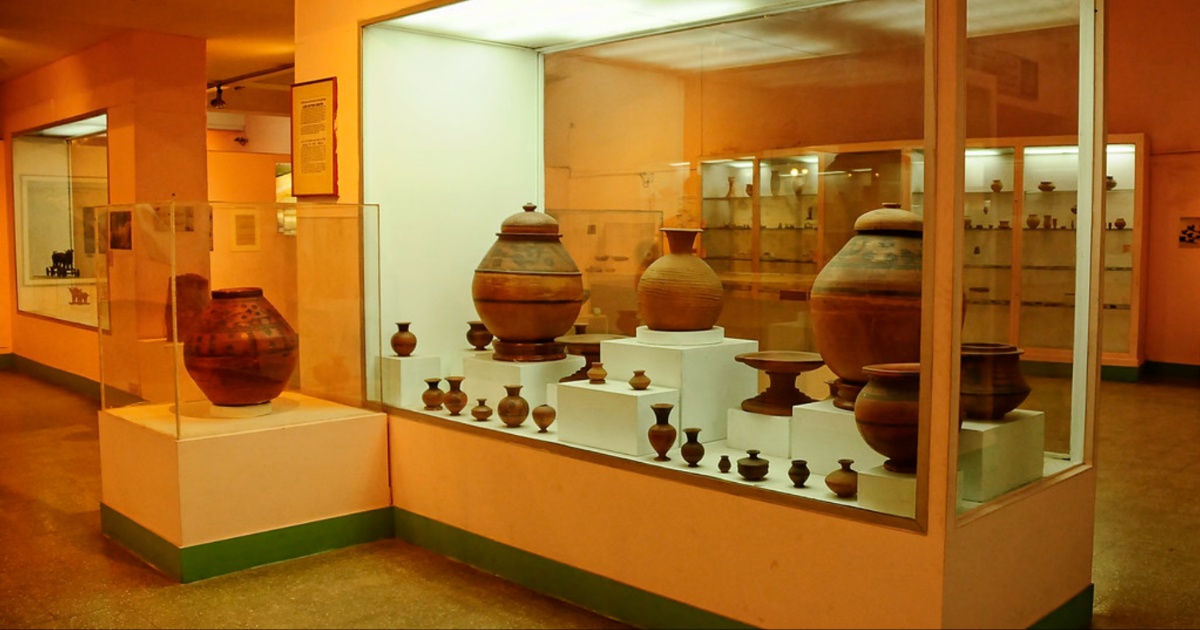I often hear people call Delhi a melting pot. However, I think of it more as a salad bowl. Unlike a melting pot, every culture, language, and religion retains its distinct flavour in Delhi. And it is the interaction between them that makes our national capital truly special.
Centuries ago, the word ‘Urdu’ was used to refer to the city. At that time, Urdu meant ‘royal camp’. The name could not be more fitting. Delhi is like a camp where people with varied cultures and traditions come to reside and make it their home. It is also the place where Urdu as a language was born.
Birth of Urdu
The earliest traces of Urdu can be found in the 11th century when the northern parts of India were invaded by Persian and Turkish forces. The invaders brought with them Farsi and Arabic languages. Along with these came the Nastaliq script, which eventually became the script of Urdu. Delhi Sultanate became the hotspot for the concentrated development of the language. The streak continued with the Mughal Empire from the 16th century onwards.
While the indigenous people spoke Punjabi, Haryanvi, Braj, and Dakkani, the foreigners spoke Persian, Pashto, and Dari. Numerous exchanges happened in markets, mosques, and battlefields. As is the law of nature, the need to communicate necessitated the development of a common register. And thus Urdu, a language by and of the common folks, became Zabān-i Urdū-yi Muʿallā … the ‘language of the exalted camp’, that is, Delhi.
Urdu = Delhi = Urdu
Not very long ago, Urdu was one of the commonly-spoken languages of Delhi. Now, as per the 2011 census, only 5 per cent of Delhi’s population speaks Urdu. The official percentage is only a record of people who claim Urdu as their mother tongue. But the influence of Urdu that has seeped into our so-called ‘shuddh Hindi’ is tremendous. There are thousands of people who are unaware that the Khariboli that they speak shares has derived many words from Urdu. Because of this, Many deny that Urdu is declining in importance.
In Delhi, Urdu continues to be integral. Look at all the street signs. On most of them, the names are written in English, Hindi, Punjabi, and Urdu too. Word which we use very commonly such as bazaar, sarkaar, zindagi, waqeel … they all come from the Perso-Arabic dictionary and are shared by Khariboli and Urdu.
Fighting for survival
It might be safe to admit that the knowledge of the Perso-Arabic script, in which Urdu is written, has fallen. This script, the rasm-ul-khat, is not read or written by many people today. Very rarely do I see a person sitting in a DTC bus reading an Urdu newspaper. I do have friends whose families have been living for generations in Delhi. However, it was very difficult to find one with Urdu-speaking members. But I did not falter in my koshish. Wajeeha Khan, an old friend, tells me that she knows only elementary Urdu. It is from her grandma that she often hears sher-o-shayaris of famous poets.
Nida Zehra, who works with Josh Talks, started learning the Urdu alphabet from her mother when she was eight. And for the past three years, she has been involved in writing Urdu poetry. “My mother used to read Jaraayem and Mashriqi Aanchal. In order to learn the language, I go back to those oldies,” she says.
Shop for Urdu
If you are wondering where to get these titles, then Urdu Bazaar is your one-stop shop. This bazaar is located right next to Jama Masjid. Here you will find rare books and magazines in Urdu. One of the oldest publishing units here is Maktaba Jamia. Another is Kutub Khana Anjuman-e-Taraqqi-e-Urdu. Zaidi ji of Maktaba Jamia tells us that lately, the sale of books by poets such as Faiz Ahmed Faiz has increased. And the buyers are all youngsters.
Another quiet presence of the Urdu era is Ghalib ki Haweli. Located in Chandni Chowk, this old mansion is where the most-quoted Urdu poet spent his last days. It is now a memorial museum where Ghalib’s hand-written books and letters are on display.
New-found love for Urdu
Delhi’s youth has not limited itself to Ghalib or Faiz. In recent years, there has been a surge in interest in various other poets and writers like Sahir Ludhianvi, Dagh Dehlvi, Iqbal Ashhar, and Shehzad Ahmed. To a large extent, the credit for reviving these poets in the mainstream goes to organisations like the Rekhta Foundation. Rekhta is a Delhi-based organisation that has made Urdu poetry trendy. Its website hosts nearly 45,000 Urdu e-books. It has played a crucial role in reigniting our love for Urdu. The foundation has launched a free online Urdu learning portal and also offers Urdu script learning classes. It also organises various Urdu events in Delhi, of which Jashn-e-Rekhta is the most popular one. Interest in dastangoi, mushairas, and qawwalis has increased lately, thanks to such events.
Is Urdu a language of the Muslims?
Urdu is often gets associated with Islam. It is a common belief that it is the language of Muslims. However, Monika Sharma thinks that language is just a means to express oneself. “Urdu has developed in and around Delhi. It is the zubaan of the Delhiites. I do not see any reason behind tagging it with a particular religion,” she says. Similarly, student Tazeen Ali feels that one belongs to a language rather than a language belonging to someone.
Manzar Bhopali aptly wrote about Urdu:
Ye ‘nanak’ ki, ye ‘Khusraw’ ki, ‘daya-shankar’ ki boli hai;
Ye Diwali, ye Baisakhi, ye Id-ul-Fitr, Holi hai.
(This is the language of Nanak, Khusro, and Daya Shankar;
It is Diwali, Baisakhi, Eid-ul-Fitr, and Holi.)
The attraction of Urdu
So, what attracts a common Delhiite to Urdu? Personally, I feel that Urdu has a lot of tehzeeb or politeness oozing out of it. The use of Urdu words in our daily parlays add a hint of freshness and sophistication to our speech. Urdu has a sweet texture and turns heads every time it is fluently spoken. “Who doesn’t want to understand the beautiful Urdu sher-o-shayaris?” says Priyanka Singh Lingwal, a Delhi University scholar. Learning the Urdu script has enhanced her calligraphic skills as well.
Saliqe se hawaon mein jo khushboo ghol sakte hain,
Abhi kuchh log baaqī haiñ jo urdu bol sakte haiñ.
(There are some who can still weave fragrance into the air,
There are still some left who can speak Urdu with flair.)




